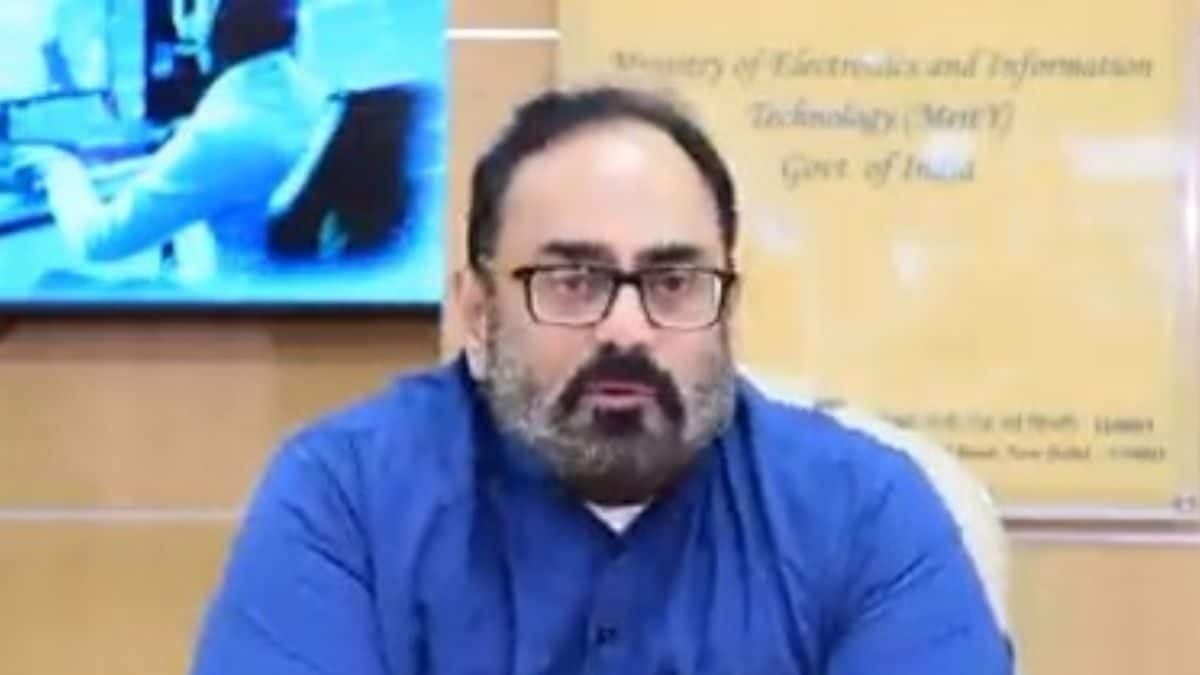‘States Need Not Worry About Online Gaming Now’: MoS Chandrashekhar on New IT Rules

Union minister Rajeev Chandrashekhar said while there was no need for a central law for online gaming, it was worth considering for betting and gambling and the MHA will take note. (Image: Twitter/File)
The union minister also said there was no need for a central law for online gaming and – with the final amendments to the IT Rules of 2021 in place – also explained why the Centre will never look into legalising gambling and betting
Minister of State for Electronics and IT Rajeev Chandrashekhar on Saturday said there was no need for states to be worried about the online gaming sector now and there was no need for a central law in this regard.
With the final amendments to the Information Technology Rules of 2021 in place, Chandrashekhar also explained why the central government will never look into legalising gambling and betting.
“Different states are trying to regulate betting and gambling, now it’s not necessary for them to do it. Anything online has to be regulated by the Government of India and this framework enables the states to not worry about their subjects in this regard,” he said.
The union minister said there was no need for a central law for online gaming, but it was worth considering for betting and gambling and the ministry of home affairs will take note.
On legalising betting and gambling in India, Chandrashekhar said, “We are a democracy and we respond to what citizens want. In India, most people think of betting and gambling as a social evil and harmful; they don’t want it. That’s what the government will have to respond to. At this stage, there is a significant consensus in India that this should not be allowed.”
The minister talked about why the government had gone for the self-regulation route in the online gaming sector. “Online gaming, like many parts of the digital economy, is driven by innovation by the young and we don’t want the government to regulate what young Indians do,” he told CNN-News18.
“We are open to having industry and other stakeholders create a credible institution that will then regulate that space,” he said.
He added: “The rules have defined what are no-go areas. We have said, where wagering and betting are concerned, it is not allowed on India’s internet. What is permissible and by effect impermissible will be determined by these SROs (self-regulating organisations). The SROs will have students, educators, child rights protectors, gamers, psychologists. So there will be a broad-based representation. It will have to create a capability to decide what is permissible and not in the online gaming industry.”
Chandrashekhar further expressed confidence that these organisations will be able to handle the load. “We are at an early stage of creating these capacities in these SROs. We are creating and designing them, we are making sure that the representation is broad enough. There will be terms of reference that will ensure conditions that will involve failing a game – wagering, betting, if it causes harm to a child, including addiction, and if it involves harm to a gamer. If you fail these tests, then it can’t be certified by the SRO. So a small slice of games in India will be prohibited, but a large expanse including real money games will be open for expansion,” he said.
He added: “The industry said it should be our joint mission to make these SROs world class and build credibility. They should function in a fair, transparent and consistent manner.”
Read all the Latest Tech News here
For all the latest Technology News Click Here


